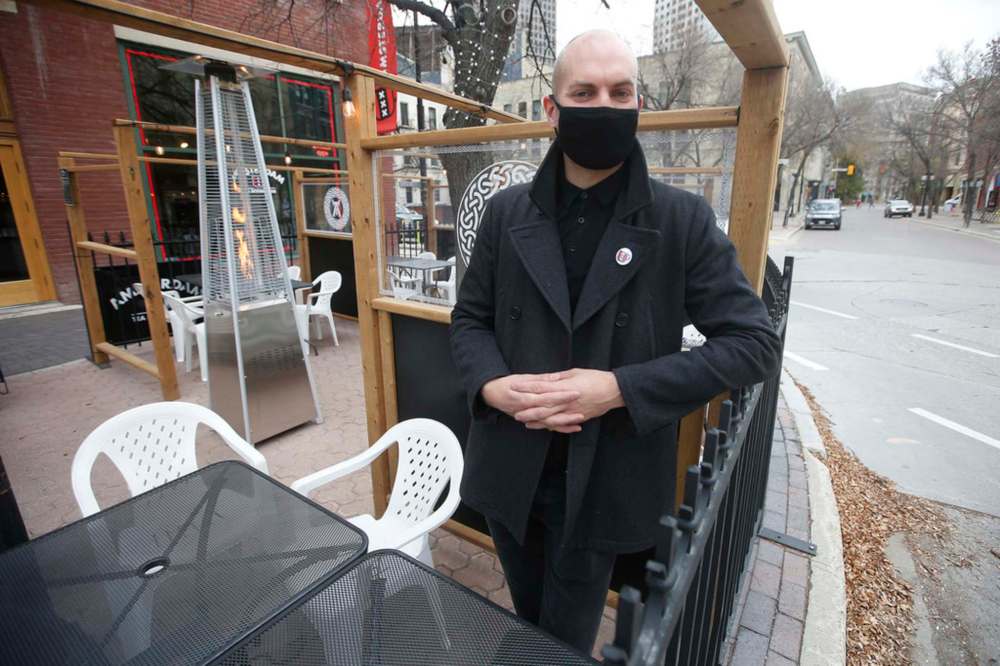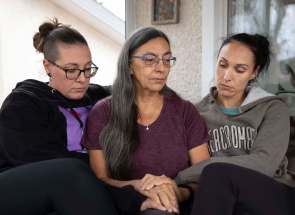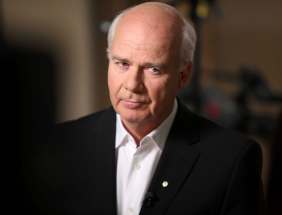City plots two-year economic recovery plan
Read this article for free:
or
Already have an account? Log in here »
To continue reading, please subscribe:
Monthly Digital Subscription
$0 for the first 4 weeks*
- Enjoy unlimited reading on winnipegfreepress.com
- Read the E-Edition, our digital replica newspaper
- Access News Break, our award-winning app
- Play interactive puzzles
*No charge for 4 weeks then price increases to the regular rate of $19.00 plus GST every four weeks. Offer available to new and qualified returning subscribers only. Cancel any time.
Monthly Digital Subscription
$4.75/week*
- Enjoy unlimited reading on winnipegfreepress.com
- Read the E-Edition, our digital replica newspaper
- Access News Break, our award-winning app
- Play interactive puzzles
*Billed as $19 plus GST every four weeks. Cancel any time.
To continue reading, please subscribe:
Add Free Press access to your Brandon Sun subscription for only an additional
$1 for the first 4 weeks*
*Your next subscription payment will increase by $1.00 and you will be charged $16.99 plus GST for four weeks. After four weeks, your payment will increase to $23.99 plus GST every four weeks.
Read unlimited articles for free today:
or
Already have an account? Log in here »
Hey there, time traveller!
This article was published 19/10/2021 (1512 days ago), so information in it may no longer be current.
A two-year economic recovery plan for Winnipeg aims to help the city heal from the wounds delivered by COVID-19, especially its ailing core.
After 19 months of pandemic losses, the plan proposes to devote $30 million of economic incentives for the downtown area. That would include $10 million of federal gas tax funds to revitalize downtown spaces and $20 million of tax-increment financing grants to support downtown development, especially affordable housing.
It also calls for efforts to keep government offices downtown and entice their workers back, while extending the waivers for temporary patio fees until the end of 2022.

Mark Turner, owner of the Amsterdam Tea Room, said the effort is greatly needed.
“Anything the city is doing to put money back into the area, especially local businesses, is awesome,” Turner said Tuesday.
While his restaurant’s indoor dining revenue is now close to pre-COVID levels, the business was only in its second year when it began to face lengthy pandemic shutdowns and restrictions. Due to those factors, Turner expects it will take about four years to recover.
“Anything the city is doing to put money back into the area, especially local businesses, is awesome.”
– Mark Turner, owner of the Amsterdam Tea Room
“We expect to see good growth over the next couple of years and then (it will be) probably a year or two after that until we’re financially comfortable again,” he said.
Turner urged the city to ensure businesses can also get easier access to city staff to speed up permit approvals in the future. He said it would go a long way to cutting red tape and helping recovering restaurants set up patios.
Recovery highlights
A City of Winnipeg report proposes many potential steps to help the municipal economy heal from the impact of COVID-19. Here are a few key options:
— Continue waiving temporary patio program fees until the end of 2022.
— Waive permit fees for street closures to encourage block parties and festivals.
— Improve permits and inspections and invest to enhance that service in 2023.
— Extend the guarantee of the emergency line of credit for the Winnipeg Convention Centre Corp.
A City of Winnipeg report proposes many potential steps to help the municipal economy heal from the impact of COVID-19. Here are a few key options:
— Continue waiving temporary patio program fees until the end of 2022.
— Waive permit fees for street closures to encourage block parties and festivals.
— Improve permits and inspections and invest to enhance that service in 2023.
— Extend the guarantee of the emergency line of credit for the Winnipeg Convention Centre Corp.
— Provide $10 million of federal gas tax funding, also known as Canada Community-Building Funds, to improve parks infrastructure, add splash pads and enhance active transportation.
— Advocate for more Winnipeg Transit support and federal gas tax dollars from Ottawa.
— Lobby the province for more poverty and homelessness supports.
— Use city social media to promote businesses, sports, and arts/entertainment venues in the downtown.
— Seek partnerships to create specific economic recovery plans for Winnipeg’s hardest-hit industries.
— Provide up to $50 million of property tax increment grants over 25 years for projects that ensure at least 30 per cent of their units are affordable (including $20 million earmarked for the downtown.)
— Devote up to $20 million in additional property tax increment grants over 10 years to support new and expanded businesses and developments.
— Work to reduce red tape.
— Continue to allow temporary 15-minute loading zones in downtown and the Exchange District for curbside pickups (at businesses).
— Improve timelines for urban Indigenous economic zone agreements.
— Encourage people to work downtown, potentially calling for a “moratorium” on government office reduction in the downtown.
“They’re on the right track with the patios and waiving the fees but I don’t think that’s enough,” he said.
With so many workers staying home during the pandemic, the report notes downtown streets remain emptier than prior to COVID-19, so small businesses still have fewer customers to rely on.
Angela Mathieson, president of CentreVenture Development Corp., said it makes sense the city core is a key focus of the report.
“We have 70 per cent of the city’s office spaces in the downtown and not all of those workers have returned. We have had some pretty devastating impacts, in terms of what’s been happening to small businesses in the neighbourhood and just that street life that we were working so hard to build for so many years,” said Mathieson.
Coun. John Orlikow (River Heights-Fort Garry), said the plan offers many good options to restore momentum.
“We’re going to get out of COVID and this is going to show us a path… so we can re-energize our economy,” said Orlikow.
The report suggests all governments may be asked to keep all of their downtown office space to ensure more workers return to the area. However, Orlikow said it would need to be weighed against the benefits some staff have found in being able to work from home.
Council approval would be needed to implement the changes, while all financial commitments would also need to survive the city’s 2022 budget process.
Coun. Scott Gillingham, finance committee chairman, said he supports the overall plan.
“I’m supportive of strategically using the federal funds. I think that’s the prudent thing and the appropriate thing for council to do… to spur and produce economic recovery for our city.”
“We have 70 per cent of the city’s office spaces in the downtown and not all of those workers have returned. We have had some pretty devastating impacts.”
– Angela Mathieson, president of CentreVenture Development Corp.
The proposal does not recommend giving hotels a 50 per cent rebate on accommodation taxes, a motion that has been debated at council in the past.
The report notes tax revenue funds the destination marketing reserve, which is expected to have little money or face a deficit by the end of this year, depending on how the pandemic progresses.
joyanne.pursaga@freepress.mb.ca
Twitter: @joyanne_pursaga

Born and raised in Winnipeg, Joyanne loves to tell the stories of this city, especially when politics is involved. Joyanne became the city hall reporter for the Winnipeg Free Press in early 2020.
Our newsroom depends on a growing audience of readers to power our journalism. If you are not a paid reader, please consider becoming a subscriber.
Our newsroom depends on its audience of readers to power our journalism. Thank you for your support.







